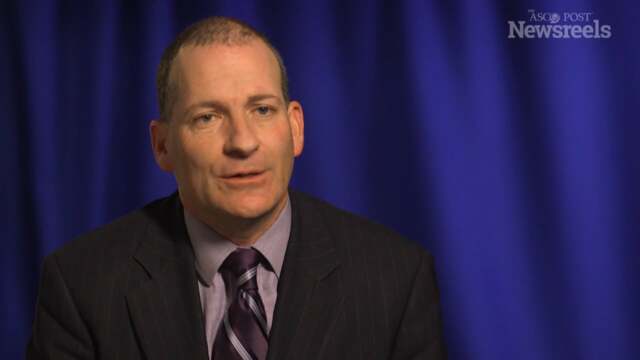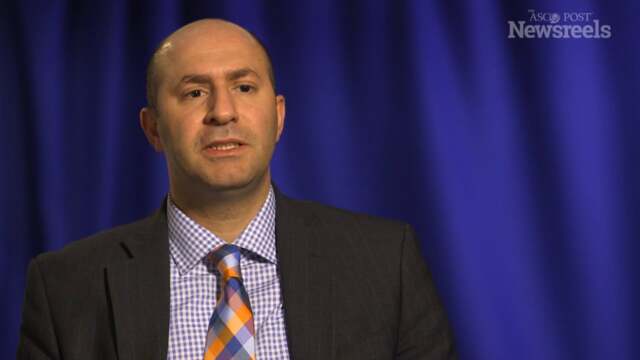Katja Weisel, MD, on Multiple Myeloma: Results of the CASTOR Study
2016 ESMO Congress
Katja Weisel, MD, of the University of Tübingen, discusses study findings on daratumumab, bortezomib, and dexamethasone vs bortezomib and dexamethasone in patients with relapsed or refractory multiple myeloma. (Abstract 906O)
Christopher J. Sweeney, MBBS, of the Dana-Farber Cancer Institute, discusses how long-term study results showed no survival benefit in men with ogliometastatic prostate cancer. (Abstract 720PD)
Mansoor Raza Mirza, MD, of Rigshospitalet, Copenhagen University Hospital, discusses phase III study findings on maintenance therapy with niraparib vs placebo in patients with platinum-sensitive recurrent ovarian cancer. (Abstract LBA3)
Christopher J. Sweeney, MBBS, of the Dana-Farber Cancer Institute, discusses how this early clinical endpoint will accelerate the development of new therapies for localized intermediate and high-risk prostate cancer. (Abstract 717O)
Paolo A. Ascierto, MD, of the Istituto Nazionale Tumori–Fondazione Pascale, discusses in Italian overall survival and safety results from a phase 3 trial of ipilimumab at 3 mg/kg vs 10 mg/kg in patients with metastatic melanoma. (Abstract 1106O)
Toni K. Choueiri, MD, of the Dana-Farber Cancer Institute, discusses study findings on cabozantinib vs sunitinib as initial targeted therapy for patients with metastatic renal cell carcinoma of poor and intermediate risk. (Abstract LBA30) Follow him on Twitter: @DrChoueiri





